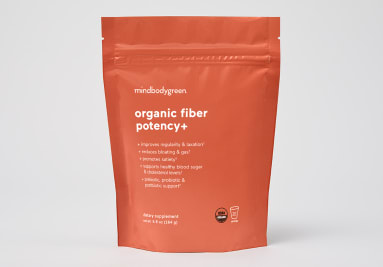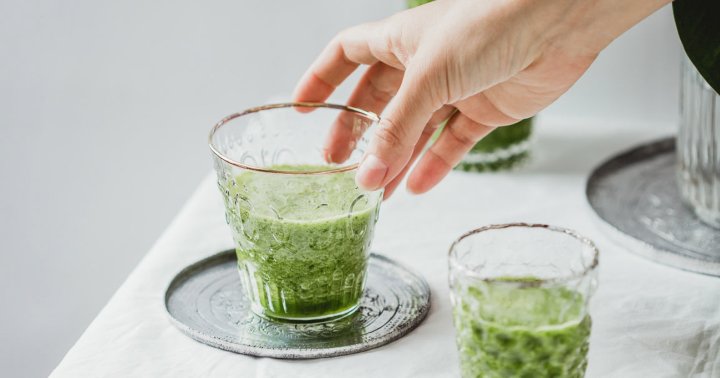Fiber Vs. Fermented Foods: Which Is Better For Your Gut Health?
Which gut-healthy category is superior?

Image by Alita Ong / Stocksy August 26, 2023 Our editors have independently chosen the products listed on this page. If you purchase something mentioned in this article, we may Type "best foods for gut health" into your Google search bar, and a slew of fiber- and probiotic-rich staples will likely devour your screen. Kimchi, sauerkraut, beans, leafy greens, you name it—plenty of foods enhance the good bugs in your gut. And, look, we never like to pit healthy foods against each other—we have more of an "everyone's welcome to the party" approach—but you may be wondering which gut-healthy category is even a tad superior: fiber or fermented foods? Board-certified internist Vincent Pedre, M.D., author of The GutSMART Protocol, may just have the answer. 
Advertisement
This ad is displayed using third party content and we do not control its accessibility features.
Fiber vs. fermented foods
First things first: Let's define these food groups. Fiber is a type of complex carbohydrate found exclusively in plants that isn't broken down in the digestive tract and, therefore, helps with satiety, digestion, blood sugar balance, healthy bowel movements, and microbial balance (i.e., good versus bad gut bugs). Fiber-rich staples include buckwheat, barley, kale, broccoli, lentils, and more—you can find a full list here, as well as our favorite fiber supplements.
Fermented foods, on the other hand, are created through fermentation (duh), in which components of foods, like the natural sugars, are broken down by yeast and bacteria and result in food chock-full of probiotics (aka, the good bugs). Some examples include kombucha, kimchi, sauerkraut, miso, and yogurt, plus others.
To boil it all down to a one-sentence comparison: Fiber foods feed the good bugs in your gut, while fermented foods help increase the actual number of those good bugs. Both are ultimately important for optimal gut health, and one is not necessarily "better" than the other. However, if you're just embarking on your gut health journey, you might want to get your fill of fermented foods before loading up on fiber.
On the mindbodygreen podcast, Pedre references a study1 in which researchers measured microbial diversity in folks who ate five to eight servings of fiber per day versus those who ate six cups of fermented foods per day: "What [they found] is that a high-fermented-foods diet increased microbial diversity in that group and lowered 19 inflammatory markers," he explains.
The fiber-rich group did see positive effects on microbial function and immune response, mind you, but the fermented foods had a significant effect on inflammation. That said, you might want to up your intake of fermented foods before introducing a significant amount of fiber so you can reduce inflammation and increase microbial diversity before actually feeding those healthy gut bugs.
Again, just remember that both food groups are ultimately important for overall gut health. "I hate that they pitted fiber-rich [foods] against high-fermented [foods]. I think there should have been a third group where there was no diet intervention so we could see these two against that as well," says Pedre. "But it starts to drop some really great questions here because I don't think it's about fiber versus fermented. It's really about the combination of the two."
Advertisement
This ad is displayed using third party content and we do not control its accessibility features.
The takeaway
What are the best foods for gut health? We'd still adamantly recommend fiber and fermented foods, as both are ultimately necessary for a flourishing microbiome. However, if you already have an unhealthy, inflamed gut, you might want to especially load up on fermented foods. Once you replenish those healthy gut bacteria, then you might feel more comfortable feeding them with fiber—here are seven clever ways to do just that.

 Hollif
Hollif 

































